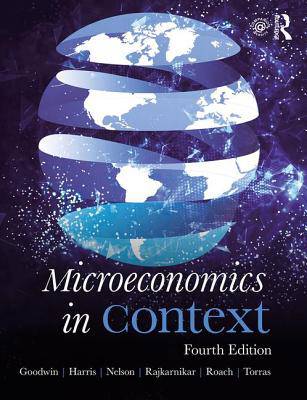
- Retrait gratuit dans votre magasin Club
- 7.000.000 titres dans notre catalogue
- Payer en toute sécurité
- Toujours un magasin près de chez vous
- Retrait gratuit dans votre magasin Club
- 7.000.0000 titres dans notre catalogue
- Payer en toute sécurité
- Toujours un magasin près de chez vous
Microeconomics in Context
Neva (Tufts University, USA) Goodwin, Jonathan M. Harris, Julie A. (University of Massachusetts, Boston, USA) Nelson, Pratistha Joshi Rajkarnikar, Brian Roach, Mariano Torras
Livre broché
79,95 €
+ 159 points
Format
Description
Microeconomics in Context lays out the principles of microeconomics in a manner that is thorough, up to date, and relevant to students. This book offers engaging coverage of current research and policy issues from economic inequality and climate change, to taxes and globalization.
Spécifications
Parties prenantes
- Auteur(s) :
- Editeur:
Contenu
- Nombre de pages :
- 646
Caractéristiques
- EAN:
- 9781138314566
- Date de parution :
- 18-10-18
- Format:
- Livre broché
- Dimensions :
- 199 mm x 245 mm
- Poids :
- 1348 g

Les avis
Nous publions uniquement les avis qui respectent les conditions requises. Consultez nos conditions pour les avis.






